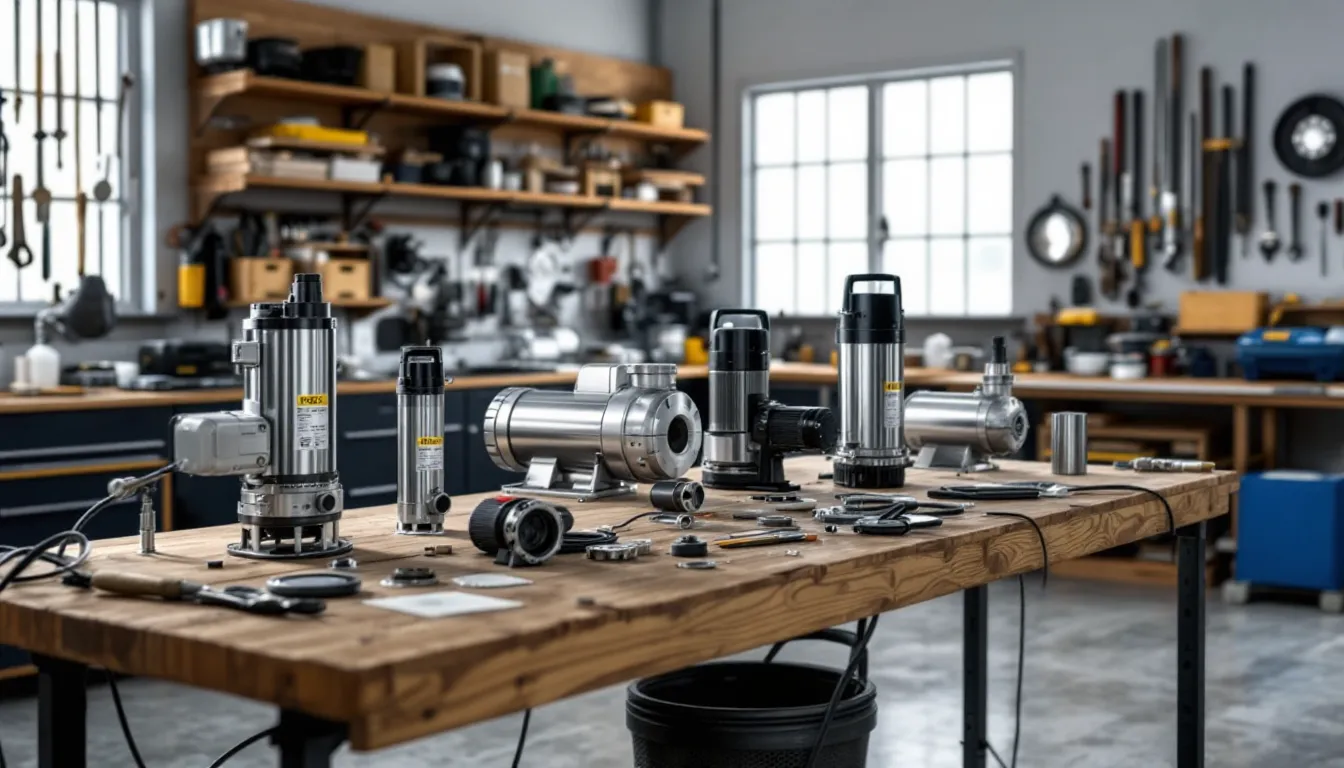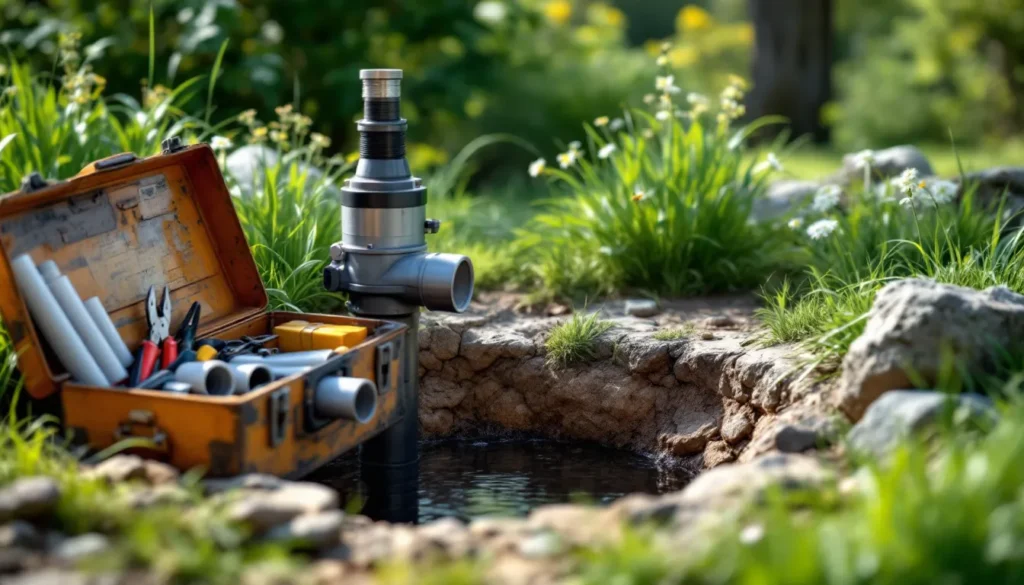Key Takeaways
- Cost Factors: The price of a water pump for a well varies significantly based on the type (submersible, jet, centrifugal), horsepower, and additional features, ranging from budget-friendly options to high-end models.
- Budgeting for Installation: Installation costs can be minimized with DIY efforts, but hiring a professional ensures optimal setup and performance, typically costing between $500 to $2,000.
- Maintenance Matters: Regular maintenance, including filter checks and electrical inspections, is essential to ensure pump longevity and efficiency, costing approximately $50 to $150 annually.
- Repair Considerations: Set aside 10-20% of the initial pump cost annually for potential repairs, as issues like motor failure or leaks can lead to unforeseen expenses.
- Performance vs. Price: Higher-priced pumps often offer better efficiency and durability, making them a worthwhile investment in the long run despite the higher initial cost.
If you’re considering installing a water pump for your well, you’re probably wondering about the costs involved. A reliable water pump is essential for accessing clean water, but the price can vary significantly based on several factors. From the type of pump you choose to the depth of your well, understanding these elements can help you make an informed decision.
In this guide, you’ll discover what influences the price of a well water pump and how to budget effectively for your needs. Whether you’re looking for a submersible pump or a jet pump, knowing the average costs and additional expenses will ensure you get the best value for your investment. Let’s dive into the details and help you find the right pump for your well.
Factors Affecting Water Pump Prices
Prices for well water pumps depend on various factors that impact performance and reliability. Understanding these factors helps you make informed purchasing decisions.
Type of Water Pump
Choosing between different types of water pumps significantly affects costs. Common types include:
- Submersible pumps: Installed underwater, they typically range from $100 to $2,000.
- Jet pumps: Ideal for shallow wells, prices often vary from $100 to $600.
- Centrifugal pumps: Designed for higher flow rates, they can cost between $200 and $1,500.
Each type serves specific needs and the choice impacts overall pricing and efficiency.
Horsepower and Capacity
Horsepower and capacity directly influence pump prices. Higher horsepower generally signifies greater pumping power, affecting the cost structure:
- Pumps with 0.5 HP typically cost around $150 to $400.
- 1 HP pumps range from $200 to $600.
- Higher horsepower pumps (e.g., 1.5 HP) often exceed $600.
Pump capacity, measured in gallons per minute (GPM), also impacts pricing. Higher capacity pumps that deliver more GPM usually cost more.
Additional Features
Additional features add value and cost to your water pump. Consider the following features:
- Built-in check valves: Optimize performance and can add $20 to $100 to the price.
- Variable speed drives: Enhance efficiency, often increasing the cost by $100 to $300.
- Smart technology: Offers remote monitoring and control, potentially raising the price by $200 to $500.
These features improve pump functionality and can justify higher initial costs by providing long-term savings and efficiency.
Average Cost of Water Pumps

Costs for water pumps vary significantly based on factors such as type, horsepower, and features. Understanding the price range can help you budget effectively for your well water system.
Budget-Friendly Options
Budget-friendly water pumps typically range from $100 to $400. These often include basic submersible or jet pumps. For example, standard jet pumps cost around $150 to $300, while submersible models start at approximately $200. These options deliver essential functionality without advanced features, making them suitable for small or shallow wells.
Mid-Range Choices
Mid-range water pumps usually cost between $400 and $1,200. Submersible pumps in this category often range from $500 to $800, offering better durability and efficiency. Jet pumps fall within the $400 to $600 range. Pumps in this segment often include added features like built-in check valves or higher horsepower ratings, enhancing performance and reliability.
High-End Models
High-end water pumps start at $1,200 and can exceed $2,500. These models include advanced submersible pumps with powerful motors and smart technology integration. Features may encompass variable speed drives and enhanced energy efficiency, leading to lower long-term operating costs. Brands known for high-quality performance often price their pumps between $1,500 and $2,500, targeting users requiring robust systems for deep wells or high-demand applications.
Installation Costs
Installation costs for a water pump can vary significantly based on the choice between DIY efforts and hiring professionals. Understanding these aspects helps you budget effectively.
DIY Installation vs. Professional Help
DIY installation can save you money, yet it requires skill and time. If you’re comfortable with tools and following detailed instructions, you might manage the installation successfully. However, mistakes can lead to costly repairs or pump inefficiency. Professional installation assures proper setup and maximizes pump performance. Costs for hiring professionals typically range from $500 to $2,000, influenced by the complexity of the installation and local labor rates.
Equipment and Materials Needed
If you choose to install the pump yourself, you’ll require specific equipment and materials. Common items include:
- Wrenches and pliers: Essential for connecting pipes and fittings.
- PVC pipes and fittings: Used for water transport, typically needed for surface installations.
- Electrical wiring: Necessary for connecting the pump to power.
- Water level gauge: For ensuring proper placement in the well.
Budget around $300 to $600 for tools and materials if you’re going the DIY route. Planning for contingencies and additional materials can prevent overspending during the installation process.
Maintenance Costs
Maintenance costs for a well water pump can significantly impact your overall budget. Regular upkeep ensures optimal performance and longevity, empowering you to avoid costly repairs or replacements.
Routine Maintenance
Routine maintenance typically includes checking and replacing filters, inspecting electrical connections, and testing the pump’s performance. Regular inspection every six months is advisable to identify issues early. Changing filters every three to six months can prevent clogs and ensure clean water. Checking electrical connections also promotes safety and efficiency. Expect to spend $50 to $150 annually on routine maintenance, depending on the pump type and specific requirements.
Potential Repairs
Potential repairs can arise from wear and tear, leading to unexpected costs. Common issues include motor failure, leaks, and loss of prime. Motor replacement usually ranges from $200 to $600, while leaks may cost $50 to $300 to fix, depending on the source and severity. Loss of prime could require adjustments or part replacements, costing up to $150. It’s wise to set aside 10-20% of the initial pump cost annually for repairs and maintenance to ensure readiness for any issues.
Conclusion
Choosing the right water pump for your well is crucial for ensuring a reliable supply of clean water. By understanding the various factors that influence pump prices you can make an informed decision that fits your budget and needs. Whether you opt for a budget-friendly model or a high-end system investing in quality will pay off in the long run.
Don’t forget to factor in installation and maintenance costs as these can significantly impact your overall investment. Setting aside a portion of your budget for repairs and upkeep will help you avoid unexpected expenses down the road. With the right knowledge and planning you can secure the best value for your water pump and enjoy a consistent water supply for years to come.

Hi, I’m Md Rofiqul, a gardening enthusiast who loves spending time in the garden and backyard. I enjoy caring for plants, growing flowers and vegetables, and creating a green space that feels peaceful and refreshing. Gardening is more than just a hobby, it’s a passion that connects me to nature and brings joy to my daily life. Living with plants inspires me to embrace simplicity, patience, and sustainability while making every day more colorful and rewarding.
